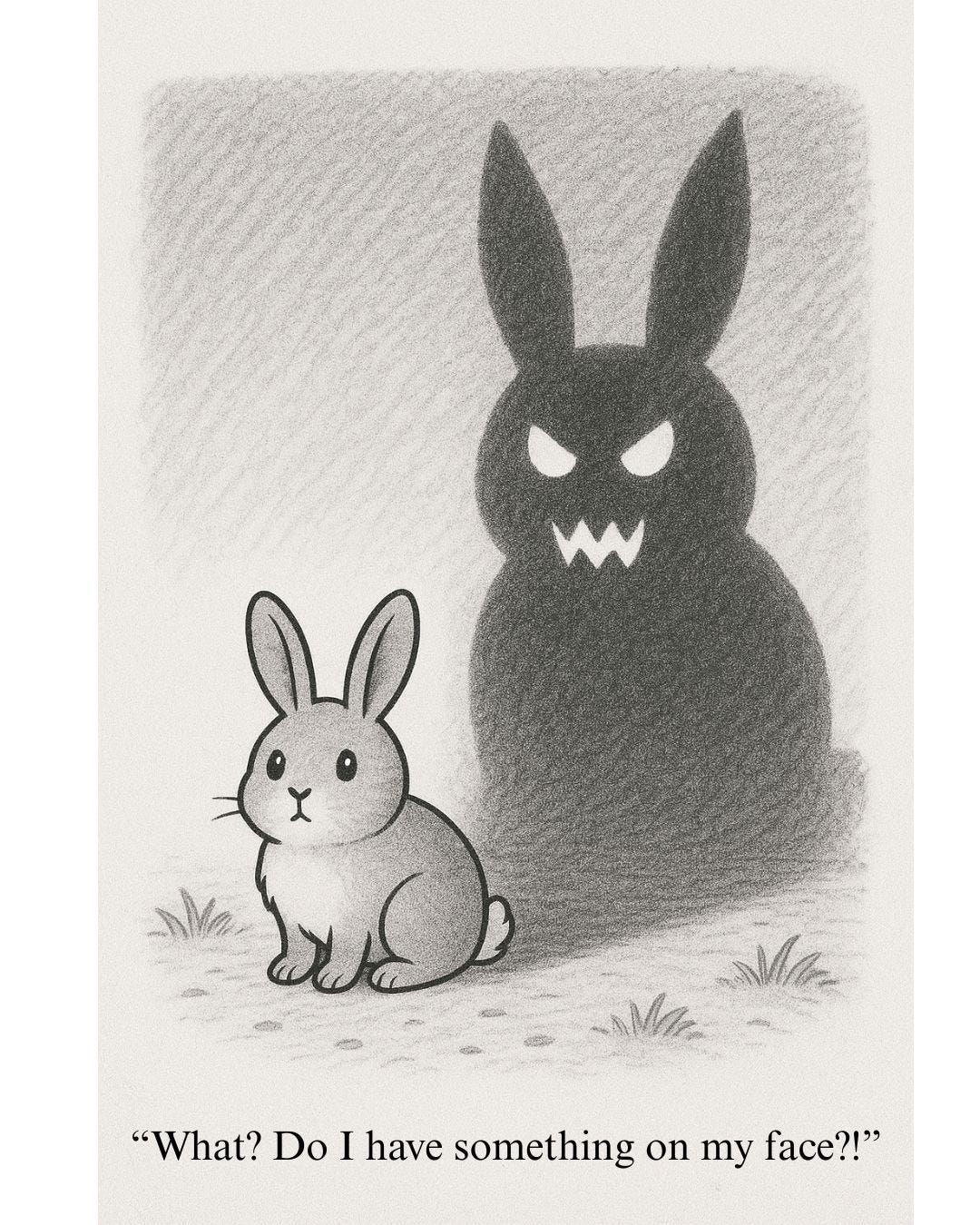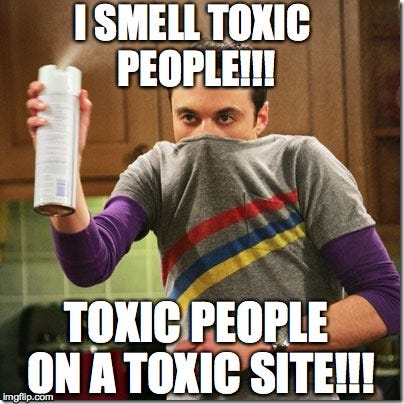There’s a pile-on culture of separatism that exists right now, where we fire out labels like rocks from glass houses. We look for ‘red flags’ in each other to increase our efficiency at shutting a connection down. And we call people toxic - a label that definitively warns against a poisonous, dangerous, contaminating entity. Surely it’s one of the worst things you could call someone, and yet we hand the label out like we’re flyering for Fresher’s Week. Are there truly that many toxic people? And how do we make the distinction?
One of the many privileges of seeing therapy clients is that it’s clear, amongst a diverse cross-section, that everyone is trying their best. No one I speak to is deliberately seeking to harm, trick or manipulate another, and yet some may still be prone to responding in ways that could result in such. Not because they’re bad people, but because it requires work to correctly identify how we learned to navigate unconscious threat, and therefore open ourselves up to new and more emotionally intelligent thought patterns.
If we’re honest with ourselves, we all have red buttons that once pushed, turn people we love into enemies at the gate. The pain in our hearts cast long shadows in the mind, creating sinister shapes out of benign interactions. Hence why work is needed to bring unconscious shadows into conscious light.
We’re all susceptible to this. Ok sure, there are stoic monks who can keep their zen pretty steady, but only because they’ve chosen not to be in relationship with anyone - and we could all do that if we swapped monogamy for the monastery!
Relationships are hard but they’re also the place in which we grow and heal. They’re the magic source of our humanity and our greatest test. They force us to face our vulnerabilities - to confront how much of ourselves we can truly share with the other without (or despite) fear of being destroyed. When those relationship gurus say it’s constant work, it’s because accountability is a continuous practice. That may sound exhausting, but once we know our triggers and are able to identify new ones when they pop up, it takes just a lava-hot minute to spot and diffuse the volcano of our own meltdown. It also helps with boundaries when we can finally discern what’s our stuff versus that which is ..definitely not our stuff.
Current zeitgeist might say that ‘Toxic People’ (great name for a band) will make us feel like everything is our stuff. And yes, of course they will …but so will everybody else who hasn’t done the work, and at times, even those who have. It’s through our own exploration that we can honestly acknowledge our individual material and therefore discern when it’s someone else’s projection. We’re not at the emotional mercy of anyone when we know ourselves, making us immune to their supposed toxicity.
We didn’t always use such language. I remember a time when the word toxic was reserved for toilet cleaner, and the word narcissist belonged to Greek Mythology. The problem with labels is that it puts something in a box, removing the need for any further curiosity. We are quick to judge and ghost and block and bitch. We become the perceived victims of terrible people that come into our lives, and brand them with the toxic label, fluorescent for all to see.
Of course, I’m not talking about people who have committed heinous atrocities on other human beings. I’m not talking about people who are deliberately cruel or dangerous. I won’t pretend there aren’t some rancid people out there. And I’m also not going to ignore that people (mostly well-intentioned) behave appallingly with one another causing all manner of destructive emotions. However, as soon as we attach a label, we strip something of its individuality. We’re no longer in relationship with a complex individual as another complex individual, but are instead attaching a set of characteristics that fit the definitive label. We become ignorant to so many oversights if our filter is already influenced. ‘Men think like this’, ‘people with ADHD behave like this’, ‘older people believe this’ etc.
When we label someone as ‘toxic’, everything they say or do is automatically put through a toxic filter, so even innocuous interactions become perceived negatively. Am I saying that we should sanction every toxic behaviour? - No. But let’s see them as behaviours, not identities.
When we retain our autonomy, we can focus on our own emotions rather than feeling at the mercy of somebody else’s. Putting someone in the toxic box removes our own agency to learn from individual experience, and these inherited narratives further propagate collective mistrust in an oversimplified black-and-white world.
There are many people who will never work on their stuff. They may not find the right purpose, or person to work through it with. They may not have the financial means. They may not yet have the courage to look inside themselves. Or they may have built the strongest defences between them and the outside world. Very few will knowingly want to cause harm to others. Very few people are, actually, toxic. However, the more we shut down on people and stop looking at relationships in their co-created complexity, the more we misunderstand each other and ourselves, therefore paving the way for so-called toxic behaviours. We feed a culture of fear and mistrust and hate and anger, which ultimately poisons us all.
Our own autonomy allows us to choose whether certain relationships help us or hurt us. Can we allow ourselves to be the masters of our own words, decisions, and actions, rather than the victims of someone else’s? And can we tolerate the slightly less straightforward idea that good people can do and say some really crappy things?
In a world of so much division and pain, true strength is found in those who are able to keep an open heart. Even if it needs a little detox first.







Wow. This is spot on and so relevant today. 👏🏼👏🏼👏🏼
Love this. Everyone seems to be looking for "red flags" in each other. How about first trying to find the red flags within yourself? Guaranteed that you have plenty. That doesn't make you toxic, it makes you human.